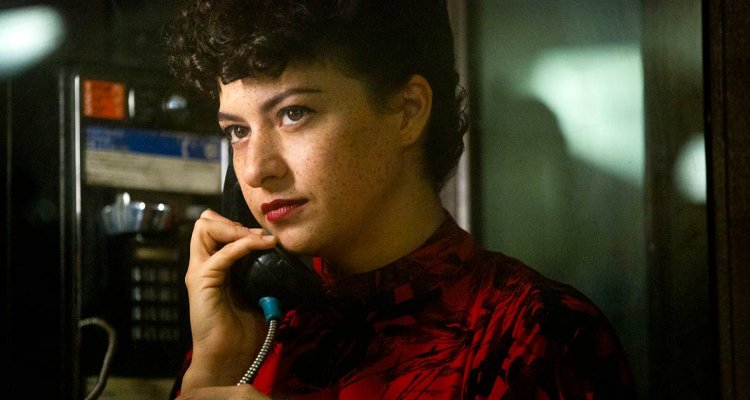[Laughs] You know what I mean though, right? Like you end each season on these dark surreal notes and its evolution is fascinating. But you mentioned the initial pitch earlier. What was that exactly? Millennial murder mystery?
Charles Rogers: That was very much like the hook that we took out when we pitched it— taking millennials satire meets mystery genre elements, but then the strange thing about how the first season ends—big huge spoiler if you haven’t watched!—you find out that there was no mystery in this mystery. And that really like dizzying starting the second season like that [laughs]. Now it’s like, “Ok, well then what are we saying?” We thought we said all we wanted to say in season one and there were even media articles that said, “perfect, end it there.” So, we keep trying to figure out what we’re going to say each season and it keeps changing, we leave some things behind and pick up new things as we go.
Right, Season 1, for as good as it is, ends with a kind of fizzling nothing-burger—perhaps fitting for these directionless millennials. And you paint yourself into a corner but find brilliant ways to twist yourselves out of them.
Charles Rogers: Thank you. The thing that has stayed as the through-line of all the seasons is the character’s emotional lives and their relationships with one another. Because they’re always doing things with major consequences and those things continue to affect their emotional lives and their friendship. And that leads us to bigger things, like what we want to say about denial and the parts of ourselves that we as human, don’t allow ourselves to see. We’ve discovered a big part of what we’re saying is that self-actualization and realization depends on turning over a lot of rocks inside of yourself that aren’t fun to look at. The key about this show, we’ve found, is that it’s character’s making unsavory discoveries that may reveal things about yourself that you don’t like or want to face.
Yes! So much about identity, the one you craft for yourself, the one you’re unaware of, it’s that psychological aspect that I most love about the show. I almost see “Search Party” like the five stages of grief—denial, depression, bargaining, etc. etc —but applied to murder and the trauma that’s created, but spinning out in different ways depending on each character.
Charles Rogers: Yeah, yeah. They all experienced denial in different ways, but with the third season in particular, what we wanted to say with the denial was—we wanted to touch on the ways in which you can believe your own lies and dissociate from the person that you used to be in order to grow into an identity that you’d prefer to be. So, Dory’s journey of denial is always at the forefront for us.
It’s incredible how untethered to reality and borderline sociopathic Dory is becoming, but still so empathetic and you don’t lose the audience. Do you guys think about that in terms of the audience?
Sarah-Violet Bliss: I’m not necessarily concerned or worried if the audience is going to lose her. I’m just curious about staying with her, understanding her choices, not necessarily making sure that the audience, empathizes, with her, but at least understanding where she’s coming from. In a way, we’re creating a challenge. We want you to feel like you want her to , even though you know she did it. We’re hoping you feel that complicated emotion of thinking, “Oh, I want [the jury] to say not guilty,” even though I know she’s guilty. We’re hoping for that effect as that’s obviously complicated for a viewer to sit with.
Yeah, it’s uncomfortable in a good, provocative way. So, you guys started with “Fort Tilden” which had a similar interrogation of the kind of interior entitlement of millennials—but polarized a lot of people it seemed [they both laugh]—was the plan from the get-go to go straight to TV? Or did you want to make a few movies first?
Charles Rogers: Yeah, we weirdly felt like we were supposed to make a TV show. It felt like, “Okay, we made a movie, now a show.” At first, we wanted to make like a “Fort Tilden” TV show, but “Girls” was already on HBO and there was “Broad City.” There were already “Fort Tildens” out there in the eyes of the industry. So, we kept trying to think of a hook to make it different, people kept suggesting hooks and everything felt all wrong until [writer/director/producer] Michael Showalter, and Lily Burns and Tony Hernandez at Jax Media thought of the mystery idea.
When they presented it to us, it hooked us immediately, yes, definitely. So, in a weird way it was like a cool homework assignment—we were given a genre to work with. And then we put all of our thoughts and feelings and emotions into that idea. That the show’s hook wasn’t born from our own impulses gave us an instant looseness with the idea that has allowed us to let things grow and evolve. Because it’s not like we were writing the story of our lives, we were just writing a story and then putting ourselves into it.

